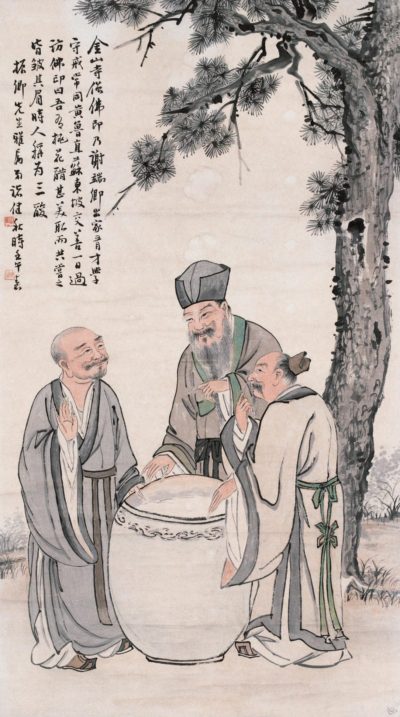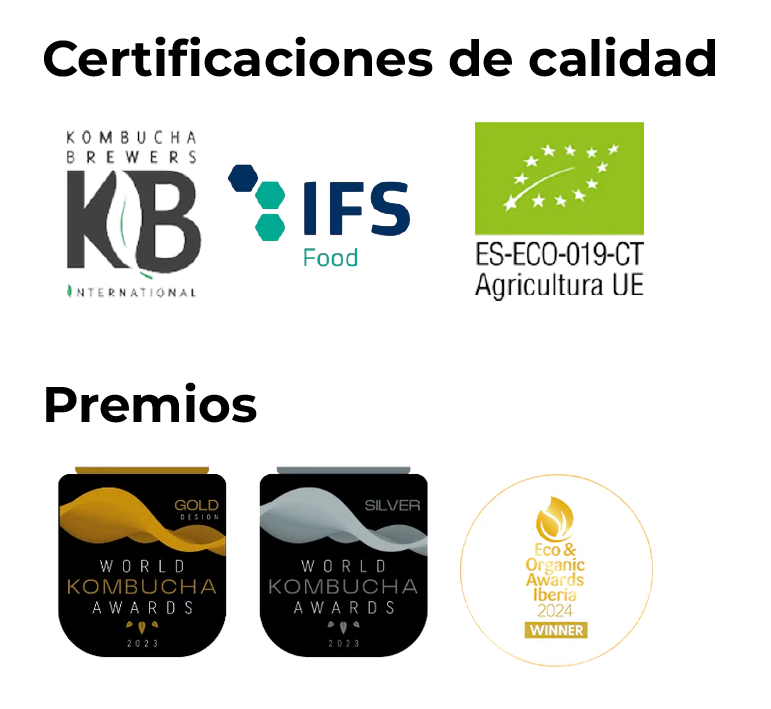History of kombucha
Everyone talks about her. The kombucha drink is the trendy drink. Although not as many really know what kombucha is. Here we will discuss the origin of kombucha, since the history of kombucha dates back to more than 2,000 years ago in Asia.
The origin of kombucha
Although the date of the origin of kombucha is uncertain because no document is preserved with K-day, the day the drink officially emerged, the first time this drink was made known was in China two millennia ago, during the Qin dynasty (221 BC). It is said that Emperor Qin Shi Huangdi was the first to make and drink kombucha. About 200 years later, the drink would gain worldwide fame after a Tibetan monk named Kombu - who ended up giving its name to the drink - gave it to the Japanese emperor Inkyo who, as a result of drinking it, was cured of digestive discomfort. Thanks to the fame granted by this fact, the drink spread throughout the Asian continent. In fact, it is said that even Japanese warriors, the famous samurai, brought kombucha to their battles to have more energy.

Reasons for the success of kombucha
From Asia, kombucha traveled through the Silk Road in Russia and subsequently throughout Europe. It was a very popular drink that was made and consumed at home until, during World War II, there was a shortage of sugar and tea, which were rationed, and its consumption was considerably reduced. In the 1960s, Swiss scientists analyzed the drink and confirmed the benefits of its consumption, giving it a new boost among consumers.
Kombucha has survived over time thanks to the fact that its defenders have been able to verify, firsthand, all the benefits it brings them, such as the contribution of probiotics that improve digestion or the detoxifying effects they experience after drinking it.
It has been on the market for almost two decades in the United States.
History of kombucha in Spain
Kombucha originated in China and later spread to Japan and India. In Europe, it arrived at the beginning of the 20th century through Russia and spread to several countries, including Spain in 1951 thanks to the Peruvian doctor Faustino Oliver Rodríguez .
In Spain, kombucha became popular thanks to the "mushroom" or sourdough, which families shared with friends and neighbors. The transaction was free, which led to the mushroom being known as the charity mushroom or the mushroom of long life.
This cartoon in Catalan from around 1955 already talks about the existence of kombucha in Spain. Its text says like this:

A fungus of strange shape
is causing a sensation throughout Spain.
As people say
it would have come from the East.
And here begins the story
of this fungus full of glory.
The juice of this mine-fungus
is named theomicin.
It cures everything: chicken eyes,
sour heart, flu, neck,
all kinds of itching
and even back pain.
And it ended like this:
A distinguished psychiatrist
"poor lunatics" he said
that the fungus of such fame
is pure nonsense,
and that he, for many reasons,
prefers the mushrooms.
And besides, if this lasts
and nobody pays attention,
many people - it says clearly and openly -
will be touched by the fungus.
En la actualidad, la kombucha se vende como una bebida refrescante y funcional con propiedades probióticas y antioxidantes. El primer productor comercial de kombucha fue G.T. Dave, quien en 1995 comenzó a venderla a través de su empresa Synergydrinks en Beverly Hills, California.
En España la kombucha ha experimentado un auge importante desde que Mūn Ferments empezó a elaborarla y comercializarla en el 2015.
La fijación para solucionar los problemas de salud del fundador de la compañía, diagnosticado con Síndrome de Gilbert durante su infancia, le llevaron a investigar y a encontrar la kombucha como solución a las molestias que le ocasionaba esta dolencia.
Jordi Dalmau optó por aparcar su profesión de ingeniero para poner en marcha la elaboración y comercialización de la primera kombucha en España sin pasteurizar que es totalmente estable a temperatura ambiente. El proceso de elaboración que realiza Mūn Ferments consigue una bebida prácticamente sin azúcar residual, lo que hace que no necesite refrigeración para controlar una posible refermentación.
Las kombuchas de Mūn Ferments, además, sólo contienen ingredientes de primera calidad, absolutamente naturales y con certificado ecológico. De esta forma, la compañía consigue poner a disposición de los consumidores la mejor kombucha del mercado español: deliciosa y saludable.





